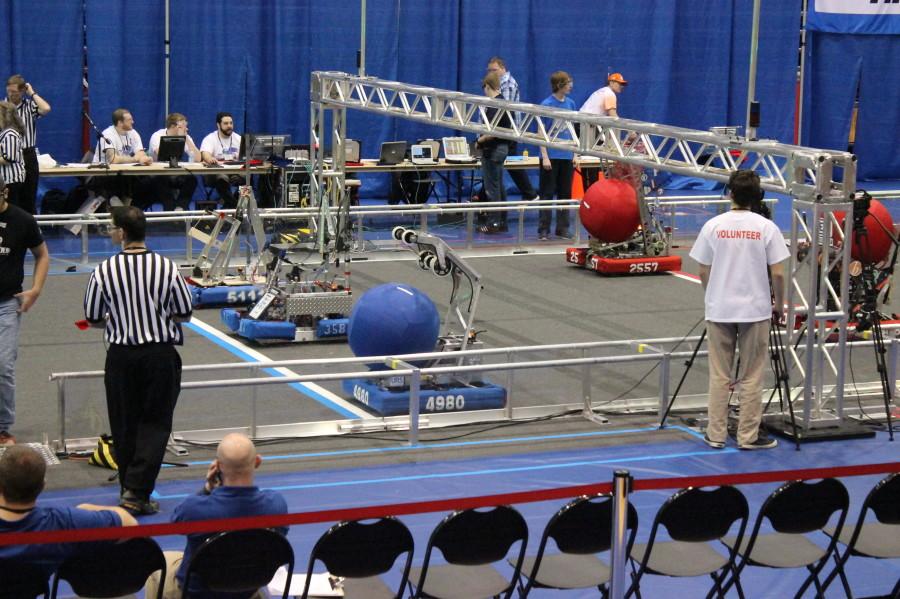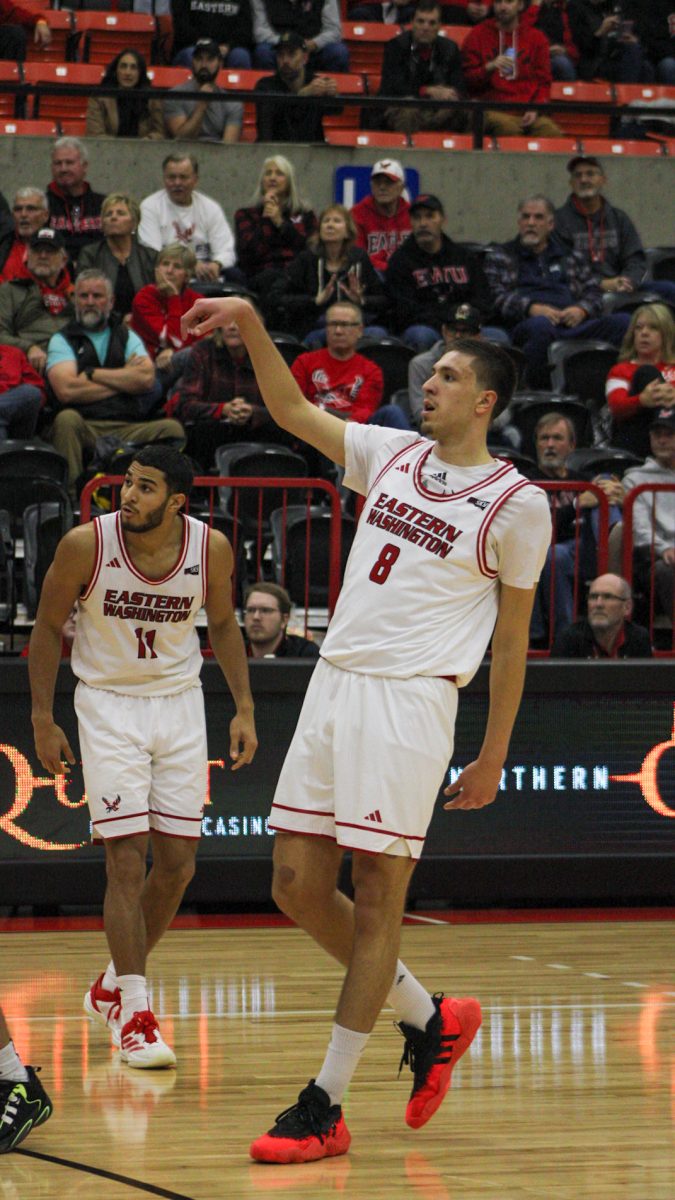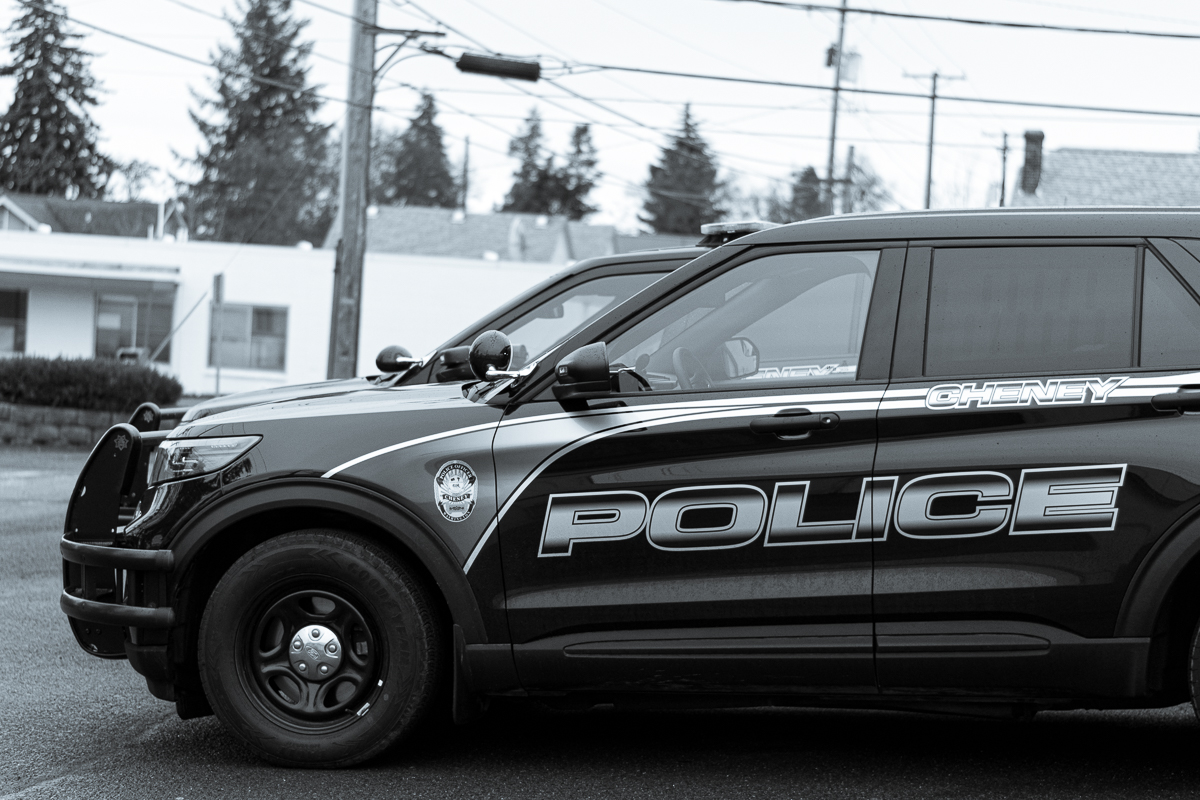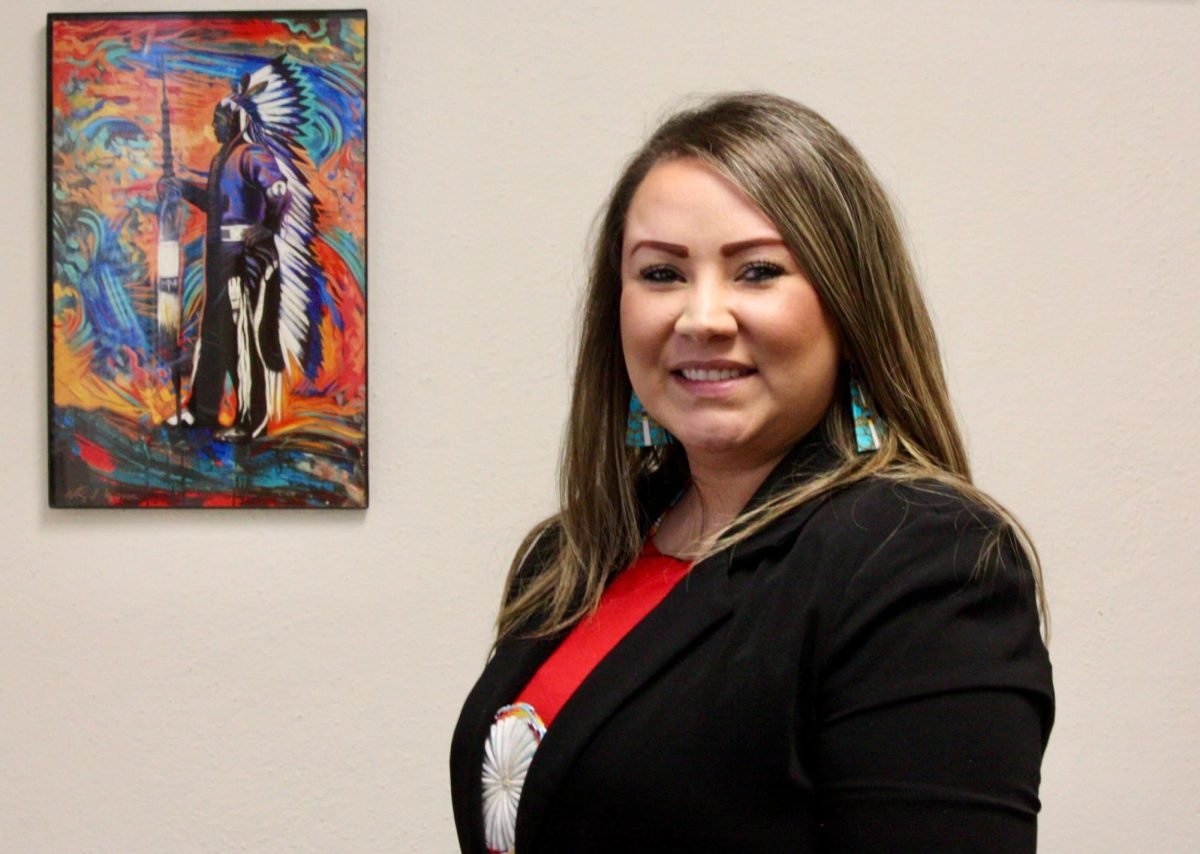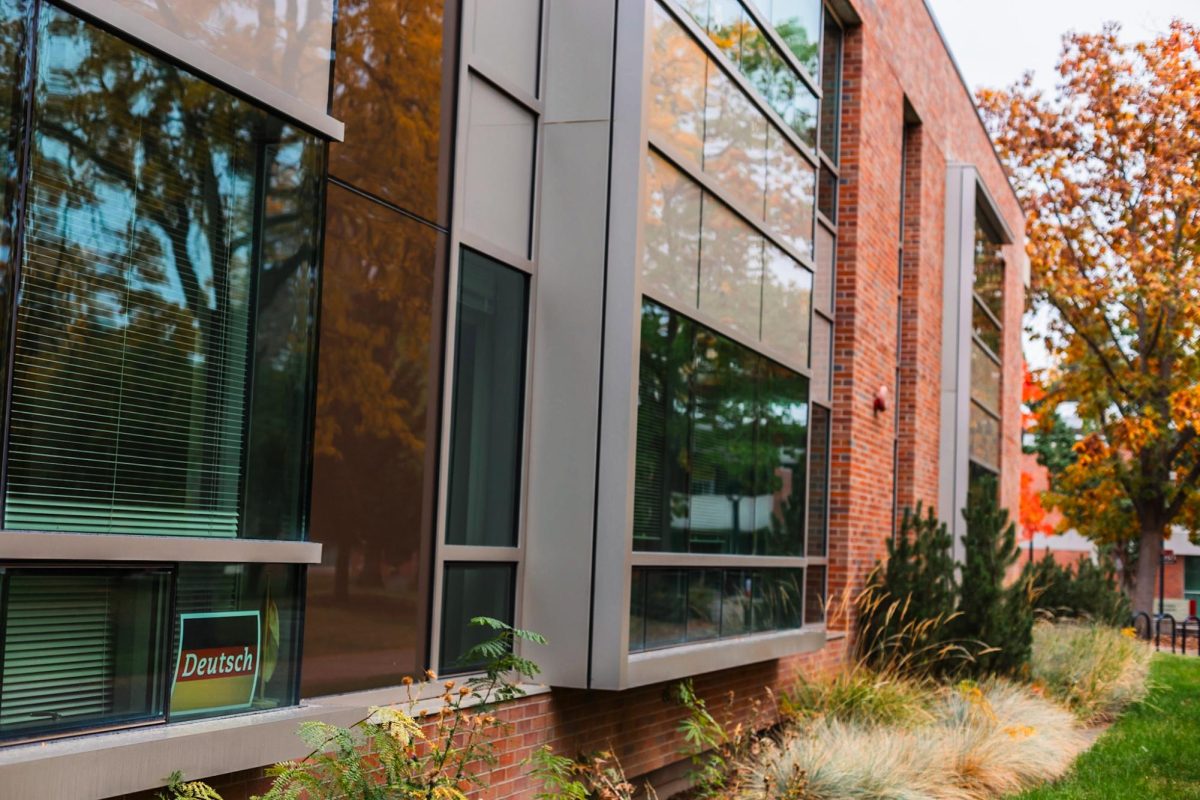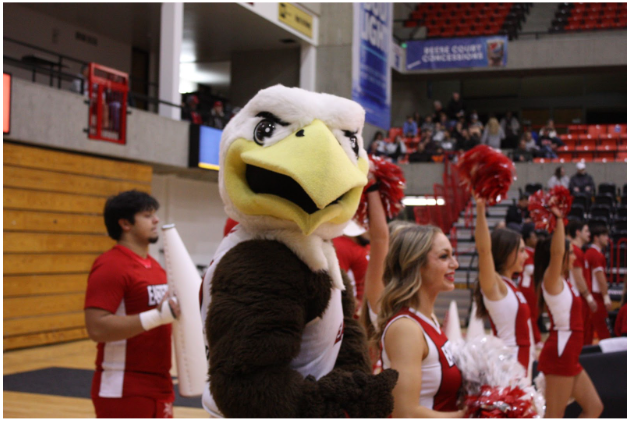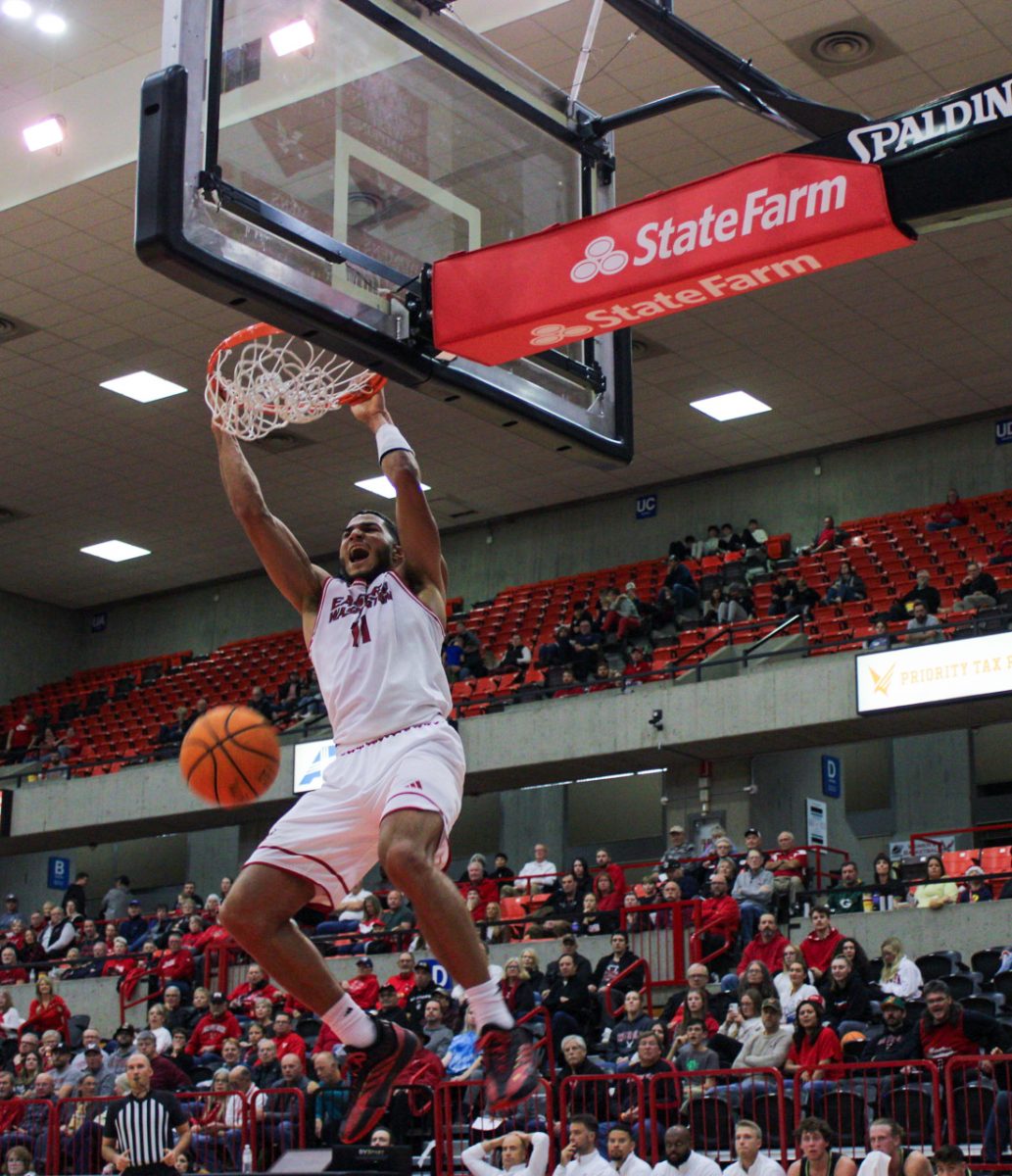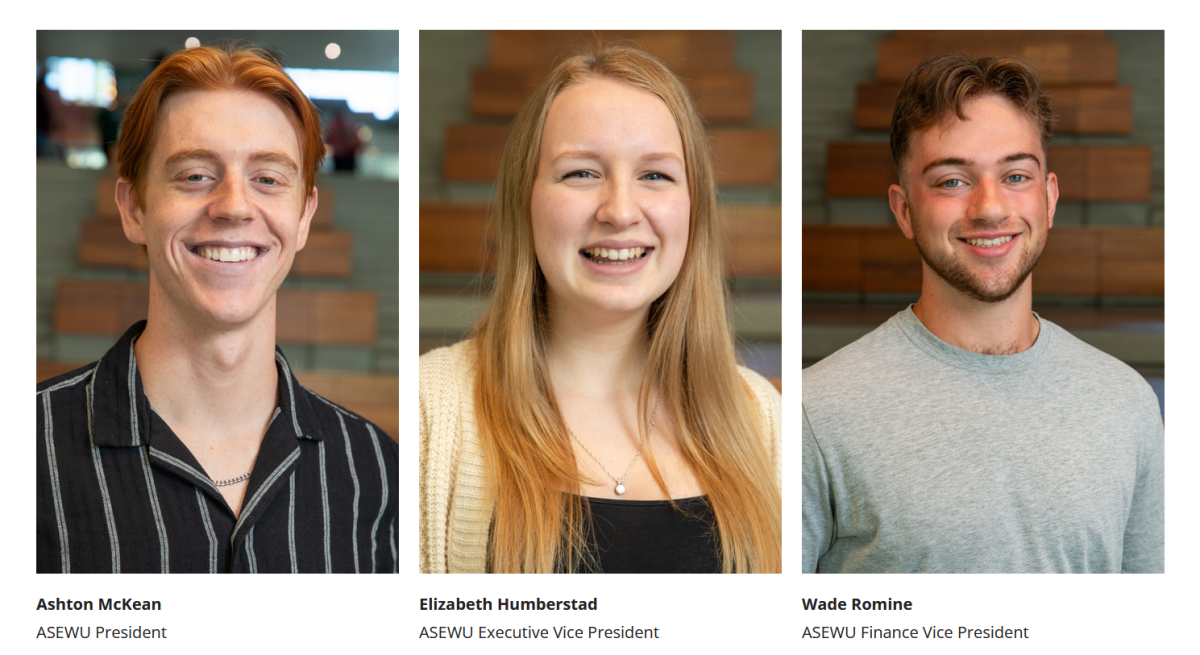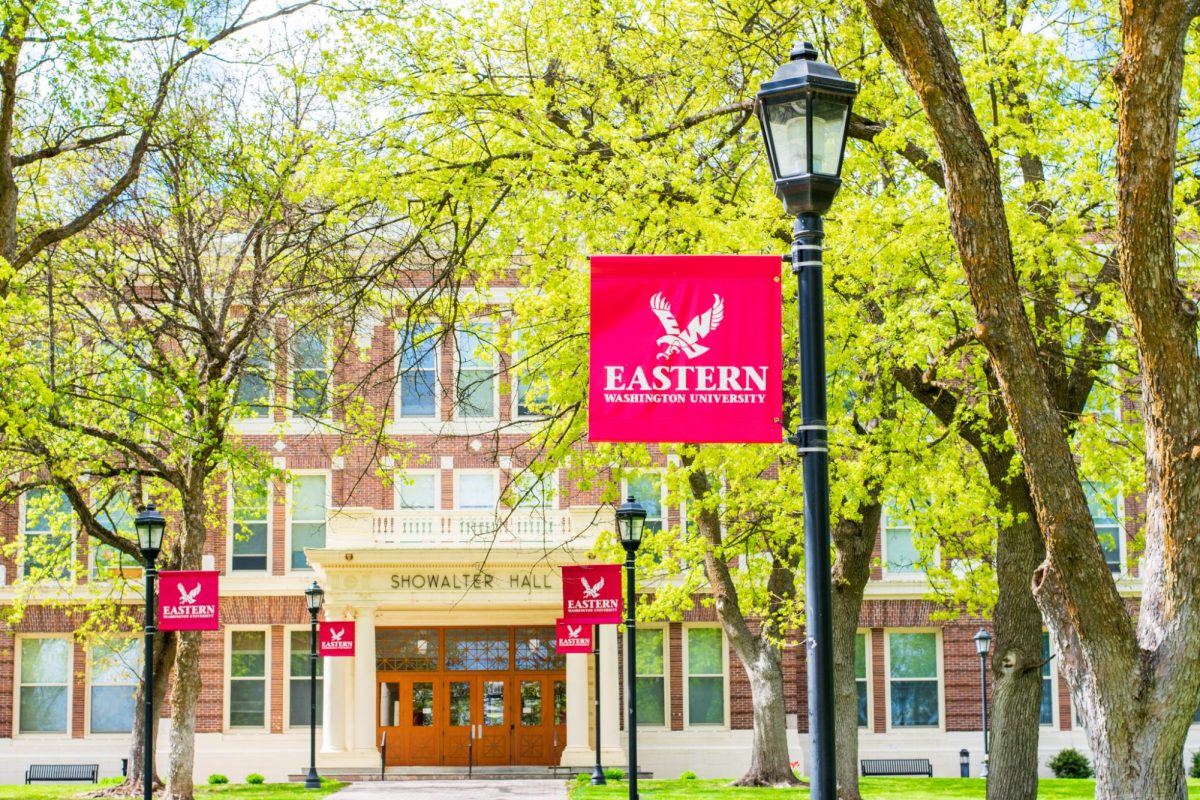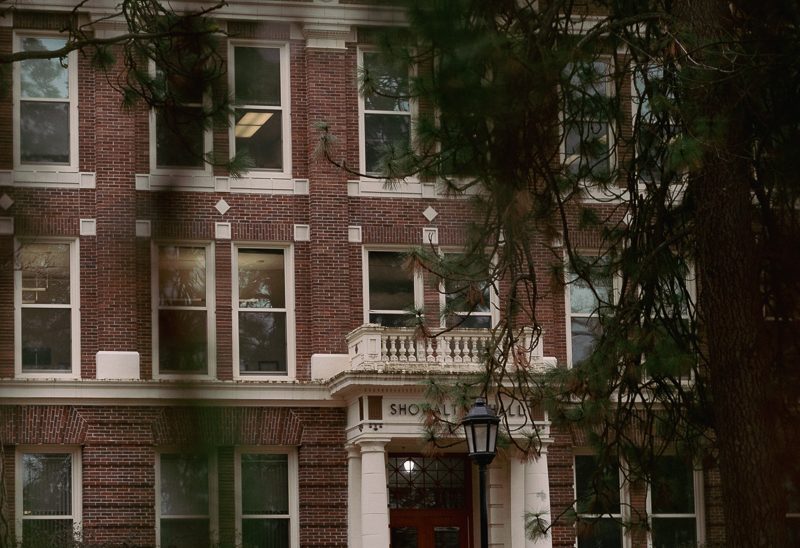By Rebekah Frank

As students piled into Reese Court, March 13-15, some could hear shouts of excitement coming from inside as if the gladiator games were going on and Maximus Decimus Meridius had just won.
In fact, those in attendance were cheering on their friends and family as they competed in the For Inspiration and Recognition of Science and Technology, FIRST, Robotics Competition at EWU. Each team consists of high school students competing together and assisting their fellow competitors.
EWU sophomore Isaiah Irish volunteered to help inspect the robots to make sure they met safety standards and rules. He said watching 100-lb robots compete in sport-like scenarios was his favorite part of the event. “Better than the Super Bowl,” said Irish.
According to the FIRST website, the mission is to “Inspire young people to be science and technology leaders, by engaging them in exciting, mentor-based programs that build science, engineering and technology skills, that inspire innovation and that foster well-rounded life capabilities including self-confidence, communication and leadership.”
EWU associate dean of computing and engineering sciences Christian Hansen said this event continues to see more and more new teams each year. “It’s a rapidly growing event,” said Hansen.
Hansen had the opportunity to mentor a new team this year from Ferris High School of Spokane. He said his team did well by placing high in the competition at EWU and will be competing at the regional in Portland.
The goal of the game, according to the FIRST Robotics Competition manual, is to use the robots to grab and shoot big rubber balls, about the size of your average exercise ball, into their goal. On each side of the arena there are two alliances which are constructed three teams from each match. With six robots on the field, of three from each alliance, the team with the most goals at the end of the two minute and 30 second periodwins.
This competition is a little different than the typical high school game. With high school sports, there is a lot of competition amongst teams. However, with the robotics competition Hansen said the focus is more on helping each other.
EWU associate professor of mathematics Dale Garraway said, “The one thing about this level is it’s not about the competition.”
Hansen said that his team would not have been so successful without the help of other teams. Teams support each other by lending tools, helping to program other robots or anything else they can do to get the robot ready to win.
This program offers many great opportunities for students besides just the competition. It has scholarships available and teaches the students about the business side of things as well.
Garraway said the Chairman’s Award, which is the most prestigious award in the program, has nothing to do with robots.
“The robotics part is a secondary level, the competition is geared towards getting students to understand how businesses work,” said Garraway.
Though the students have to build and program by themselves, they need to seek out sponsors to fund the robot. This teaches the students business aspects and how to professionally carry themselves through presentations.
It also has to do with professionalism and cooperation.
According to the FIRST website, “Gracious professionalism is part of the ethos of FIRST. It’s a way of doing things that encourages high-quality work, emphasizes the value of others and respects individuals and the community.”
“You can compete while cooperating with your competitors. … You get points for helping and there are special awards for the teams that go out of their way to help another team,” said Hansen.
“One thing that I like about this versus, like, sports in an essence for sporting teams, whether it’s high school level or university level, I don’t know how much there is of student learning beyond taking part on the team. For this [competition], there is so much beyond the student learning. There are so many other aspects that students are learning which they can take on to the future,” said Garraway.
“What I love most about it is that it’s so important what the kids take out of it. … These kids that do well, they take away some skills that they can take out and apply to the real world. … It’s about building life skills, and I think the kids get that,” said Hansen.



